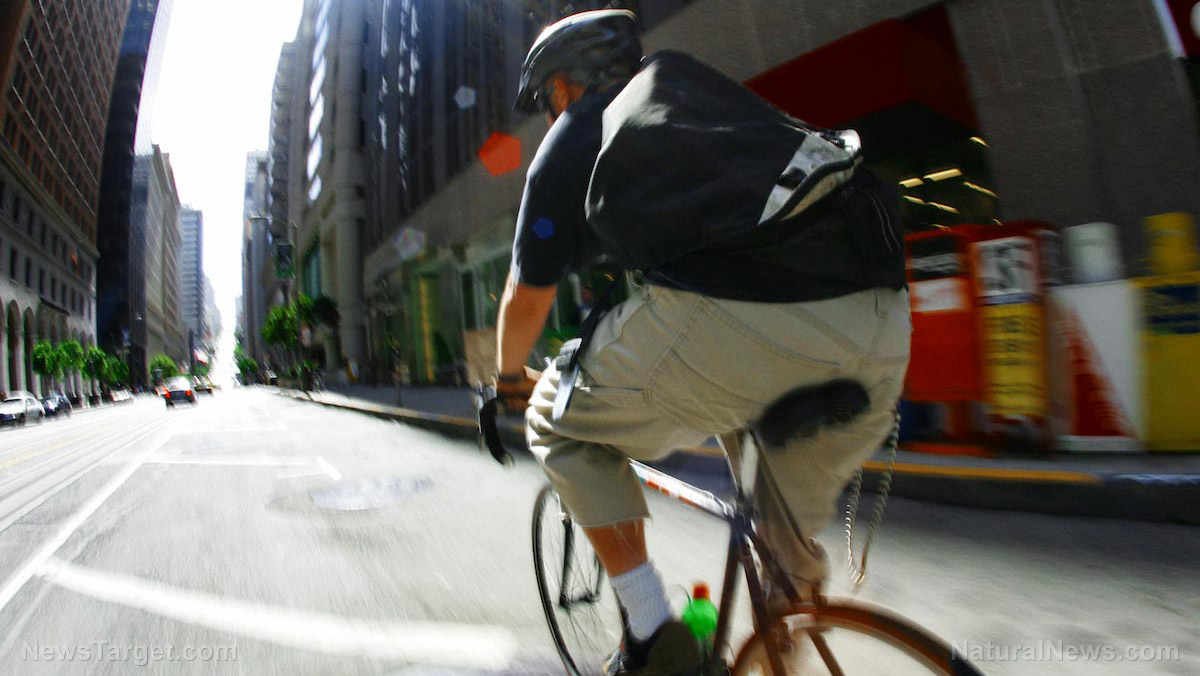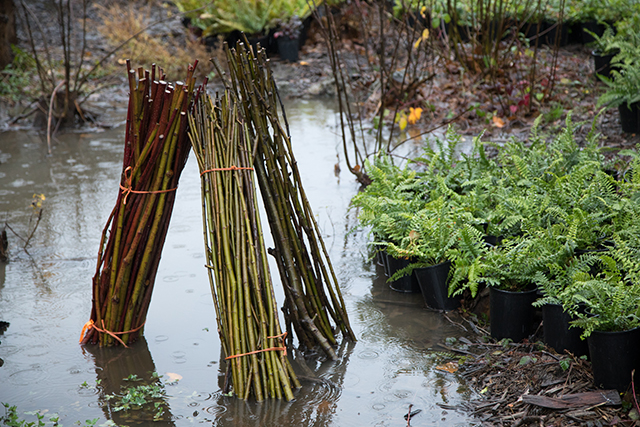Choosing a backpack for commuting that can handle the weather where you live
10/28/2018 / By Rita Winters

For people who commute on a daily basis, backpacks should account for their personal needs and conform to their environment. However, the weather should also be considered. Water causes damage to personal items such as cellphones, laptops, and water-soluble items such as paper. In this regard, choosing a backpack to suit the weather may not be that easy, so here are some considerations to make that should help you out when shopping your next commuter backpack.
- All-weather protection – We all know that the weatherman isn’t always right with his predictions. If you’re a cyclist, having an umbrella doesn’t really help, since you need both hands to maneuver a bicycle. This is where water-resistance comes in: The less absorbent the material of the backpack is, the less fearful you will be for your electronic and paper-based items. Some backpacks can take light drizzles, while others can take a full dunking in the water. Unless you’re looking to dive into a lake with your bag on, here are some water-resistant backpacks that keep your stuff dry. (h/t to OutsideOnline.com)
- North St. Bags Davis Daypack
- Stio CFS Backpack
- Timbuk2 Ltd. Void
- Dakine Cyclone II Dry Pack 46L Backpack
- Accessibility vs. Security – Some people prefer to keep their phones in an easy-access side pocket on their bags, so they can grab it at a moment’s notice. Others prefer single-compartment backpacks that provide more security than those with external zipped pockets that are thief baits. If your community is known for bag slashers and swipers, you might need a single-compartment bag (that features organization pockets inside of course). (h/t to TheWireCutter.com)
- Incase Icon Backpack
- Timbuk2 The Division Pack
- Booq Cobra Squeeze
- The North Face Pivorter Backpack
- Endurance – Aside from being water-resistant, you should also consider backpack material that is durable. Some cheap backpacks are made with materials that easily tear under strain, and you wouldn’t really want your laptop falling to ground. Make sure that you get a backpack with strong stitching (or double stitching) so you wouldn’t need to worry about your strap giving way in case you needed to pack a dumbbell or something heavy. It’s also good to note that not all expensive bags are made with heavy-duty materials. Some of those $200 bags are not even slash-resistant.
- General aesthetics – These include a streamlined design, urban style, and comfort. Style shouldn’t be sacrificed over functionality. There are many backpacks out there that have excellent organizational features that does not look like an outdoor survival carry-all. Go for the ones that look pleasing to your eyes, as well as provide you with your needs. The design should be user-friendly, something easy for you to navigate around. Backpacks that are made for security are not always easy to open (hidden zippers with small handles) and some backpacks have one too many compartments. Lastly, consider comfort as well. Having that awesome $200 backpack may make you look cool, but that strap fastener poking on your back isn’t worth it. Before buying a backpack (or anything wearable), make sure that you’re comfortable wearing it.
Last minute pro tips: If you’ve made a selection, check if the zippers of your chosen bag are water-resistant. Some bag manufacturers claim their backpacks to have excellent water-resistance, not including the zippers (where the water usually seeps in). Also check for security features such as zipper locks and GPS capabilities – these might just come in handy one day. (Related: Hiking, backpacking, hydration: Tips for selecting the best pack for your needs.)
For more tips on choosing the best materials for your bug-out needs, visit Gear.news today.
Sources include:
Tagged Under: all-weather backpacks, bug out, commuter backpacks, commuter bags, off grid, preparedness, prepper, prepping, survival, survival gear, survivalist, water-resistant backpacks, waterproof backpacks



















